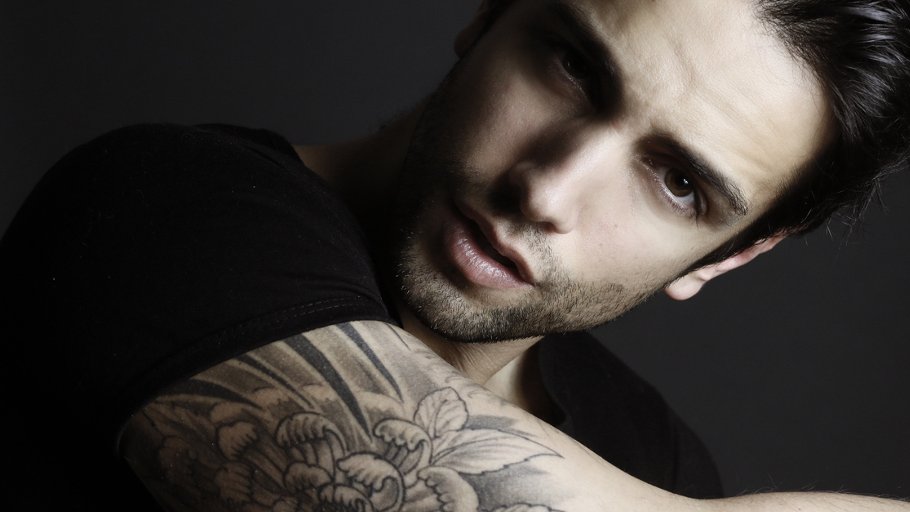 Iran’s Attack on Israel
Iran’s Attack on Israel


5 min read
Even though you can get buried in a Jewish cemetery if you have one, there are a number of compelling reasons why the Torah prohibits tattoos.
“Rabbi, if I get a tattoo, can I be buried in a Jewish cemetery?”
As a rabbi in Northern California, I’ve been asked this question many times. It’s a widespread misconception amongst American Jews that a tattoo bars one from being buried in a Jewish cemetery.
The answer, in short, is that although the Torah does indeed forbid us from tattooing our bodies (see Leviticus 19:28), nonetheless, one who has a tattoo can still be buried in a Jewish cemetery. A person who violated the Torah, whether it was by eating non-kosher, working on Shabbos, stealing in business, or getting a tattoo, can still be buried in a Jewish cemetery. If transgressors were excluded from Jewish cemeteries, our cemeteries would be largely empty.
Of course, there are still many other reasons for a Jew not to tattoo himself.
Tattoos used to be taboo in many western circles and nearly unheard of in Jewish circles. In October 1994, Jon Anderson wrote in the Chicago Tribune, “Tattoo. What a loaded word it is, rife with associations to goons, goofs, bikers, tribal warriors, carnival artists, drunken sailors and floozies.”
Today tattoos – renamed as “body art” – can be seen everywhere, a growing phenomenon amongst individuals of all socio-demographic backgrounds.
Many Jews get tattoos because they think they’re cool or simply because they like the way they look. Some view tattoos as a creative way to express their individuality. They may even get tattoos with Jewish symbols or messages. There is no ill intent whatsoever in their actions.
Nevertheless, the Torah is eternal, the prohibition against tattooing included. So with this in mind, here are a few reasons why not to get a tattoo.
1. Historically, slave-owners tattooed their slaves to prove ownership, just as cowboys branded their cattle. Perhaps that was a reason that the depraved Nazis tattooed human beings at Auschwitz. In addition to a practical solution that enabled them to keep track of prisoners, it also served to dehumanize their victims and strip them of their identity. The formerly-free individual was now nothing more than a number, mere property of the Reich. As human beings we have a desire for freedom and an innate sense of our ness. Tattooing the body does not reflect that ideal.
2. Jews believe that the human body is God’s creation and it is therefore unbefitting to mutilate God’s handiwork.
3. Our lives are given to us for a purpose and our time is meant to be used to accomplish our mission. Similarly, our body is on loan from our Creator to fulfill our job with it. Self-inflicted gashes, excessive body piercings or tattoos all bespeak a lack of respect and reverence for the body, and hence, for the body's true Owner and Designer. Tattooing one’s body can be compared to etching a name onto someone else's freshly-poured cement. It is defacing property that does not belong to us.
4. Tattoos often have only momentary relevance, yet the mark is permanent. It is unlikely that you would tattoo your phone number into your skin, no matter how hard a time you have remembering it. You know that it is temporary and not something you want to be permanently connected to. The same is true of any tattoo. There is a short-lived thrill of having a phrase, word or image indelibly etched in one's skin. But when the attitude to those marking changes, the ink still remains. People are dynamic beings, always changing and growing. According to recent studies, a large percentage of people ultimately regret their tattoos.
5. In ancient times, it was customary for idol-worshippers to tattoo themselves as a sign of commitment to their deity. Maimonides offers this as one of the possible reasons why the Torah bans tattoos (Mishneh Torah, Laws of Idolatry 12:11).
If you already have a tattoo, it can become an insignia of honor when it marks a journey of return.
Rabbi Hanoch Teller writes a story he personally witnessed regarding a young man, Jamie, who had recently become Torah observant and went to immerse in a busy mikveh in Jerusalem. As he walked towards the mikveh, he held his hands over his arms, attempting to cover his tattoos. As he stepped into the mikveh, he slipped and the lewd tattoos that lined his biceps were now exposed for all to see. At an earlier time, Jamie had viewed his tattoos with pride, but that afternoon he felt humiliation.
An elderly Jew stepped forward and in a heavily accented English declared, “Look here, I also have a tattoo.” Stretching out his frail arm, the man pointed to the row of numbers from tattooed on his arm. “It seems we’ve both come a long way.” (From It’s A Small Word After All, 1997)
View this post on Instagram
